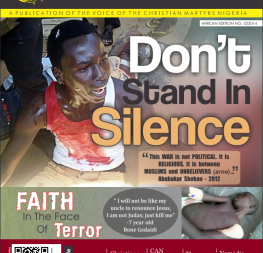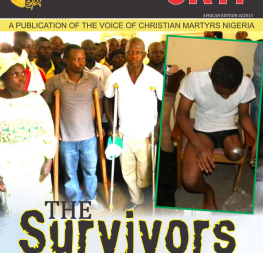To move freely in the prophetic, God needs an unhindered vessel. While He can speak through a donkey, He prefers people.
Human beings are the conduit by which the Holy Spirit moves most of the time. It's the way God set it up. In Acts 21 we see a prophet named Agabus who spoke a word to Paul. Before Paul left for a trip to Jerusalem, Agabus grabbed him by the belt and spoke, "Thus says the Holy Spirit, 'So shall the Jews at Jerusalem bind the man who owns this belt, and deliver him into the hands of the Gentiles'" (Acts 21:11, NKJV).
Though it wasn't the most encouraging of words, it was the Holy Spirit speaking prophetically through Agabus.
This scripture clearly shows that it is possible to live by the Spirit, which is being born again, yet not keep in step with the Spirit. Stepping out in the prophetic requires keeping in step with the Holy Spirit and that means keeping our connection free of interference or distractions that can interrupt the flow of His voice. If you are serious about walking in the prophetic flow, you must also be serious about keeping your life clear of hindrances.
One of the things that hinder our flow is obviously sin. A person can't be living in known sin and still expect to hear God clearly. Like with a donkey, God can use us despite us, but it is usually for a short time. This is why you see some ministries start out strong, even grow big and do powerful works, only to crash and burn in the end. Any spiritual leader, including those who walk in the prophetic, must maintain their openness before God.
Most of us know 1 John 1:9: "If we confess our sins, He is faithful and just to forgive us our sins and to cleanse us from all unrighteousness" (NKJV). John was talking to Christians. Open fellowship is maintained with God as we continue walking in the light that He reveals to us. Confession and repentance of sin is the way to find restoration and unbroken fellowship with God. It cleanses the conscience and removes every obstacle from communion with Christ.
If you can't pray for a person or group, it's a clear sign you're not over your issues with them.
Many times, instead of reconciling the issue we push it deep down into our hearts and attempt to forget about it. Unfortunately, it remains buried there just waiting for an opportune time to pop back out and sting us. Usually, it's when we are least expecting it. This burying of an issue often happens because of denial, when we have a hard time accepting the fact that the offense occurred.
Or, we want to avoid confrontation so we play the avoidance game. This doesn't make the issue disappear, it only delays the inevitable. A person can't really go forward in the fullness God has for them until they reconcile the past through genuine repentance and forgiveness. Unforgiveness and bitterness keep us stuck. Forgiveness, however, sets us free, whether or not reconciliation is possible.
Forgiveness prevents the devil from getting a foothold in your heart, which will affect your walk with God, your ability to hear from Him as well as your ability to minister to people. James 1:20 tells us, "For the wrath of man does not produce the righteousness of God" (NKJV).
Allowing anger and bitterness to simmer inside us never produces righteousness in us. Proverbs 19:11 says, "the discretion of a man makes him slow to anger, and his glory is to overlook a transgression" (NKJV). It couldn't be plainer. The ability to forgive brings God's glory on a person. Paul summed it up this way:
"Therefore, putting away lying, 'Let each one of you speak truth with his neighbor,' for we are members of one another. 'Be angry, and do not sin': do not let the sun go down on your wrath, nor give place to the devil. ... And be kind to one another, tenderhearted, forgiving one another, even as God in Christ forgave you" (Eph. 4:25-27, 32, NKJV).
"If it is possible, as much as depends on you, live peaceably with all men" (Rom. 12:18, NKJV).
All of these passages are clear that holding on to unforgiveness hurts us more than them. Someone wise once said, "Unforgiveness and bitterness is like drinking poison expecting the other person to die." It's true.
What if you find it hard to forgive someone because of repeated offenses? According to Matthew 18:21-22 (NKJV), "Then Peter came to Him and said, 'Lord, how often shall my brother sin against me, and I forgive him? Up to seven times?' Jesus said to him, 'I do not say to you, up to seven times, but up to seventy times seven.'" I have to say here before I go any further that forgiveness like this is impossible without the grace and power of God. We can't do it on our own.
When Jesus was hanging on the cross, unfairly accused, He cried out, "Father, forgive them, for they do not know what they do" (Luke 23:34, NKJV). In other situations, the act of forgiveness becomes a process — a daily choice toward obedience that we do despite our feelings.
Why is a break in relationship with a church or church member so painful? If you love somebody like a family member, an issue causes much more pain and offense. Also, Christians often have higher expectations of other Christians, so their disappointment is more severe when expectations are unmet. Putting your best effort into doing something the "right way" and then being rejected can be deflating. It makes you want to retreat to a safe place and just hide, to give up on people and relationships. It's not worth the effort or pain.
When an issue arises or a promise is broken, we say "It is what it is" and try to stay levelheaded as we ask God to help us deal with it. The only Person we have expectations of is God, according to Psalm 39:7 (NKJV), which says, "And now, Lord, what do I wait for? My hope is in You." And Psalm 62:5 (NKJV), "My soul, wait silently for God alone, for my expectation is from Him."












